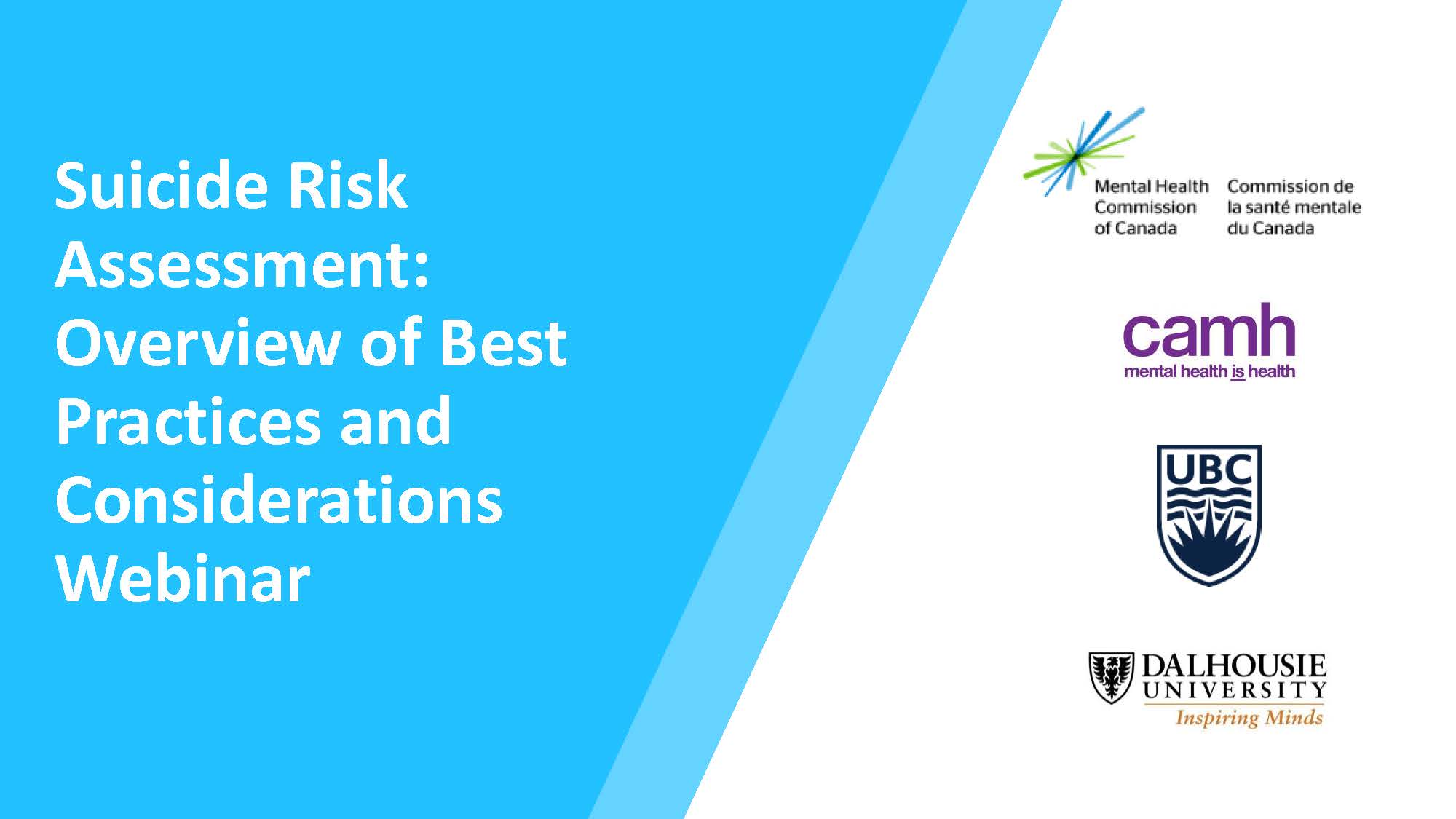If you are in distress, you can call or text 988 at any time. If it is an emergency, call 9-1-1 or go to your local emergency department.
- Professional Resources, Webinars
Suicide Risk Assessment: Overview of Best Practices and Considerations
This webinar was published in 2021. The data may be out of date. Although suicide is preventable, rates in Canada have remained relatively stable over the last two decades. The assessment of suicide risk by clinicians and mental health professionals plays a key role in detecting risk and preventing suicide. We invite you to learn more about the process of assessing suicide risk and its role in life promotion and suicide prevention. Drs. David Klonsky, Allison Crawford, and Joseph Sadek as they discuss a clinical approach to risk assessment and outline conditions that bring about suicide risk, strengths and challenges in risk assessment with diverse communities, and recommendations for future work.
- Professional Resources, Webinars
Suicide Risk Assessment: Overview of Best Practices and Considerations
Suicide Risk Assessment: Overview of Best Practices and Considerations
- Inquire, Suicide Prevention
This webinar was published in 2021. The data may be out of date. Although suicide is preventable, rates in Canada have remained relatively stable over the last two decades. The assessment of suicide risk by clinicians and mental health professionals plays a key role in detecting risk and preventing suicide. We invite you to learn more about the process of assessing suicide risk and its role in life promotion and suicide prevention. Drs. David Klonsky, Allison Crawford, and Joseph Sadek as they discuss a clinical approach to risk assessment and outline conditions that bring about suicide risk, strengths and challenges in risk assessment with diverse communities, and recommendations for future work.

SHARE THIS PAGE
RELATED

Review our Assessment Framework for Mental Health Apps — a national framework containing key standards for safe, quality, and effective mental health apps in Canada.

To help expand the use of e-mental health services, we developed four online learning modules based on our Toolkit for E-Mental Health Implementation, in collaboration with the Centre for Addiction and Mental Health (CAMH).

Stepped Care 2.0© (SC2.0) is a transformative model for organizing and delivering evidence-informed mental health and substance use services.

